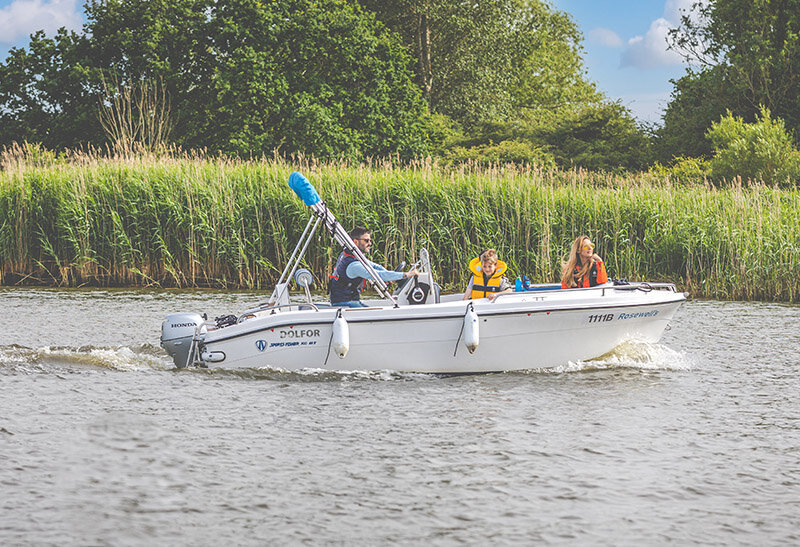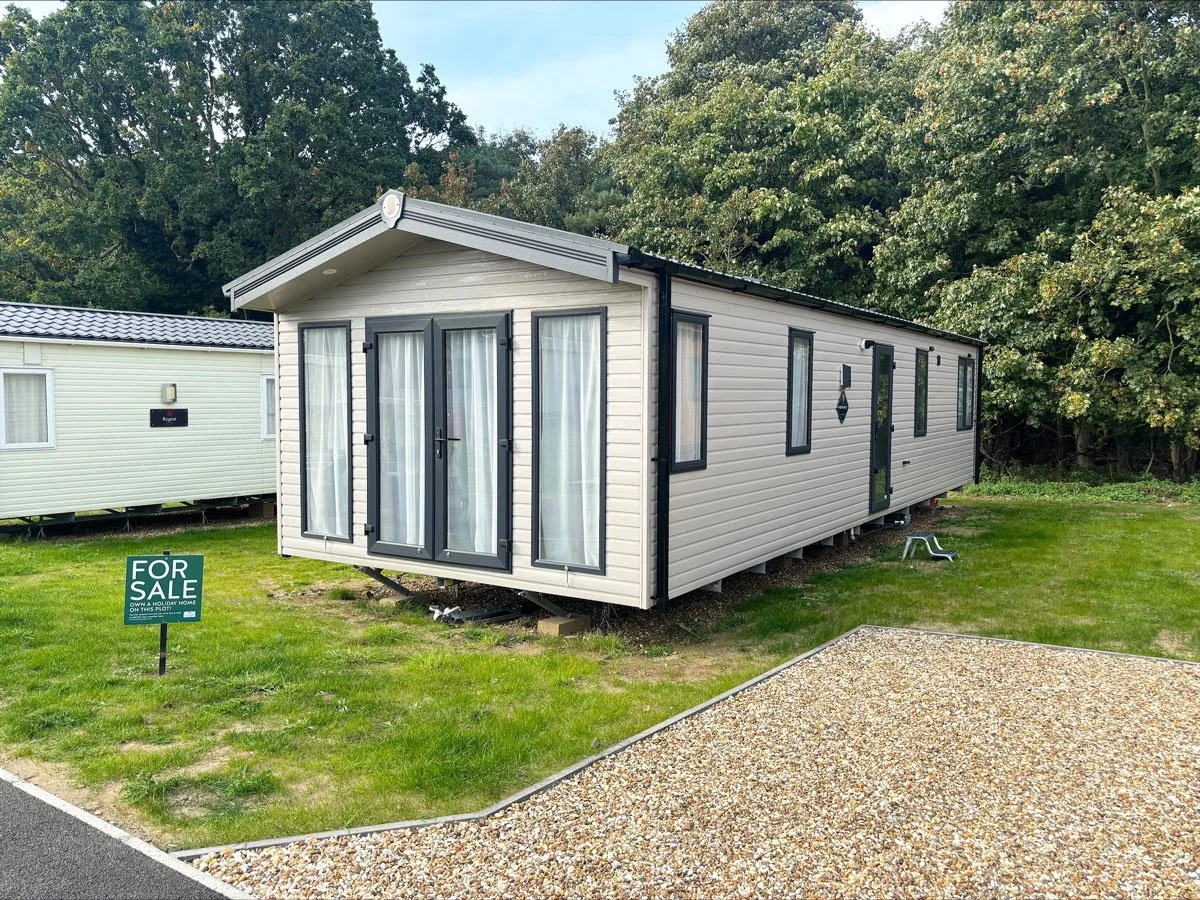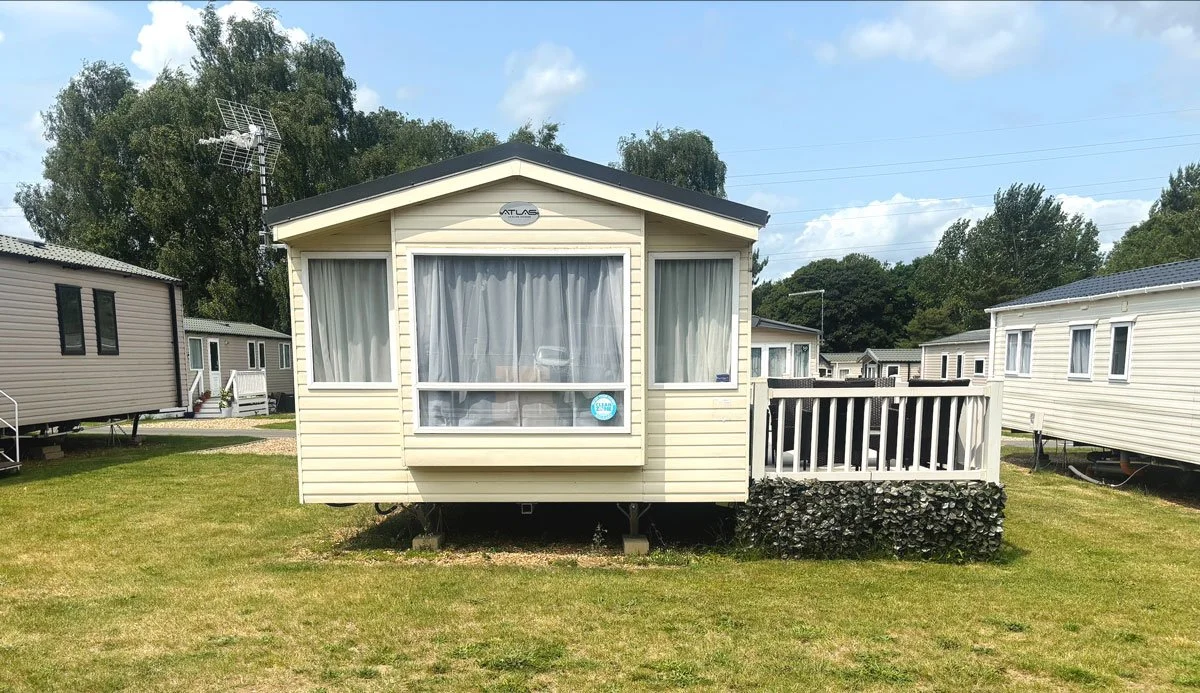The Norfolk Broads are a favourite place for UK holidays with a fascinating history. Holiday homes in Suffolk are ideally placed for enjoying the unique waterways that, strictly speaking, are called The Norfolk and Suffolk Broads.
The history of The Broads is very much a story of the relationship between man and nature. Over centuries the area has evolved into the Broadland we know today - a magical place for UK holidays.
The history of the Norfolk and Suffolk Broads
Where, today, people enjoy messing about in boats and spending time in their Norfolk holiday homes, there was once a cruel and unforgiving landscape. This flat windswept swathe of land emerged as the sea receded. The area was soon occupied by ancient tribes who made a life for themselves in the marshy soil. When metal was discovered, copper would be worked into tools and utensils during a sociological shift that developed into the Bronze Age.
By the time the Romans were occupying Britain, the sea levels were falling. Swamps dried out, creating fertile land. The Romans would start to extract peat from the Norfolk soil. It was an accessible source of fuel and they knew how to use it. The next five hundred years would see the Romans leave Britain, the Vikings arrive and a new society emerges. The first seeds of East Anglia’s agricultural heritage were sown. It was a time of peace.
Until 1066.
When the Normans took hold of Britain the area became suddenly busy. Sheep farming, salt production and the new leather industry flourished. All of this meant an increased need for shelter and warmth. By the twelfth century much of Norfolk in particular had been plundered of wood in the all-consuming search for building materials and heat. Peat would now emerge again as a source of fuel, this time it was on a much larger scale.
Peat digging was an enterprise that would last for two hundred years. It was a vast commercial operation. The monks of St Benet’s Abbey acquired huge rights to peat cutting. It’s estimated that the monastery used 200,000 bales of peat a year itself. There was also a healthy trade in selling the fuel to Norwich and Great Yarmouth.
Across those two centuries millions of cubic feet of peat were dug out. As the holes got bigger, the sea levels got higher. Water rushed in to the diggings. When the fourteenth century dawned the great empty peat pits became flooded. It was impossible to continue. Centuries would pass before this lost and voracious industry was identified as their cause, but the East Anglian landscape now had The Broads.
Their man made origins would slide from memory. They may have been fished, and doubtless their waters were used for agricultural purposes but this was their quiet time. It was as if the Broads were sleeping.
Norfolk, and to some extent Suffolk, was, by now, becoming hugely important in the nation’s economy. Agriculture was king. This created an increasing amount of river traffic, and with it came the growing realisation that Norfolk’s waterways needed better navigation. By 1670 an Act of Parliament had been passed enabling improvements.
Image: Explore the Broads by boat with a holiday home at Tingdene Broadlands Park & Marina
By the eighteenth century The Broads, and the rivers that link them, were constantly busy. The legendary boats known as Wherries had emerged as the workhorses of a commerce that shipped the produce of the booming agricultural output. And yet, the region’s population was not growing in line with the rest of the country. The once all important agricultural heartland was becoming secondary to the great industrial revolution that would change the nation forever. It would have an unprecedented effect on The Broads.
With a manufacturing economy, and an era of engineering innovation, came the railways. Trains gave a new, industrial, workforce a chance to escape their day to day existence. Now they were mobile. When the railways arrived in Norfolk in 1844 it was as if The Broads had a ticket to the future. Initially rail passengers began to notice The Broads on their way to the resorts of North Norfolk. The Victorians were falling in love with ‘the outdoor life’ and rural tranquillity. It was a welcome contrast to their increasingly demanding lifestyle. At Wroxham station they saw a point of entry to a world that suited them. It suited local business too. Very soon boatyards and retailers saw a market for hiring out boats and supplying the necessary holiday provisions.
Pete Goodrum, author of Norfolk Broads: The Biography
When the twentieth century arrived it was as if The Broads were leading a double life. The trains poured their passengers into the emerging tea rooms and inns, and the boat yards engaged with the fledgling Broads holiday industry. At the same time The ‘Marshmen’ were still making a living from cutting the reeds and tending their cattle.
In the meantime a Mr Harry Blake had added a touch of modernity to The Broads. Having struggled to book a holiday boat for himself and some companions he had the idea of acting as a booking agent. Before the First World War had shattered the calm of Edwardian England he’d run a tentative advertising campaign and, arguably, invented the modern holiday boat hire business.
The Broads now came into their own. Regattas and sailing clubs for the locals, holidays for visitors and evolving boat design saw the area enjoy the 1920s and 30s in style and then came the Second World War. The Broads were all but shut down. Fear of invasion was very real. Some boats were used as temporary accommodation and one man, charged with organising that, saw the potential in peace time. His name was Hoseason.
Tingdene Broadlands Marina is Idyllically situated on Oulton Broad between Suffolk’s stunning coastline and the world famous Broads National Park, now with an additional 54 berths on brand new fully-serviced floating pontoons
From the nineteen fifties onwards, Blakes and Hoseasons became the catalysts for the development of Broads boat hire. Sophisticated marketing aimed at a post war generation with a new found affluence delivered outstanding results. The Broads were now a playground.
At the same time there was serious work being done. Doctor Joyce Lambert had been publishing findings since 1946. In 1952 her colleague, J. N. Jennings had published his ‘Origins of the Broads’ in which he claimed that, although there might be some exceptions, The Broads were a natural phenomenon. Lambert however had carried out different tests. She found that The Broads had flat beds, vertical sides and pathways through them. It was all linked to peat digging. She went public with her controversial findings. The Broads were man made!
But, knowing more about their past was not answering questions about The Broads’ future. Despite work done over decades the preservation of the area was now a real issue. It would take time and complex legislation. It stimulated debates at national level. There was plainly a need for a cohesive and caring management of the waterways. Eventually it arrived, in the form of The Broads Authority.
And now, in the twenty first century, The Broads are internationally renowned. Boat hire holidays had been the catalyst for their becoming a holiday destination but now the area is hugely popular for so much more. With uk holidays becoming increasingly desirable The Broads are as popular as ever. And now, as somewhere to have a uk holiday home, Broadland is ideal.
















